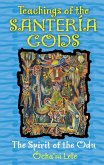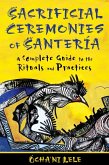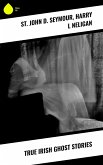Paganism in Europe was not defeated by Christianity: it never went away. From the fourth century to the twentieth, against the background of a largely Christian culture, people repeatedly attempted to revive various kinds of pre-Christian religion - beliefs and practices that we have come to label as 'paganism'.
Ancient paganism did not survive the Middle Ages in its original form; this book tells the story of the persistence of elements of paganism and the pagan idea through Europe's pagan revivals, from Byzantine Greece to medieval Eastern Europe and Renaissance Florence, from eighteenth-century Norwich to revolutionary Paris and Edwardian England. While some of these revivals are well known and others are almost entirely forgotten, they reveal the rich diversity of interpretations of paganism - and how those interpretations have been conditioned by the surrounding culture.
Revived paganisms ranged from the austerely rational to the earnestly romantic, from the mystical and occult to the stridently nationalistic. Paganism Persisting reveals European paganism's long afterlife, up to and including the emergence of modern paganism as a mass movement in the twentieth century. The authors are both historians of religion specializing, respectively, in the intellectual history of the idea of paganism and in the development of popular religion and folklore. This book has much to offer to anyone interested in European cultural history, the history of ideas and religious studies.
Ancient paganism did not survive the Middle Ages in its original form; this book tells the story of the persistence of elements of paganism and the pagan idea through Europe's pagan revivals, from Byzantine Greece to medieval Eastern Europe and Renaissance Florence, from eighteenth-century Norwich to revolutionary Paris and Edwardian England. While some of these revivals are well known and others are almost entirely forgotten, they reveal the rich diversity of interpretations of paganism - and how those interpretations have been conditioned by the surrounding culture.
Revived paganisms ranged from the austerely rational to the earnestly romantic, from the mystical and occult to the stridently nationalistic. Paganism Persisting reveals European paganism's long afterlife, up to and including the emergence of modern paganism as a mass movement in the twentieth century. The authors are both historians of religion specializing, respectively, in the intellectual history of the idea of paganism and in the development of popular religion and folklore. This book has much to offer to anyone interested in European cultural history, the history of ideas and religious studies.
Dieser Download kann aus rechtlichen Gründen nur mit Rechnungsadresse in A, D ausgeliefert werden.









